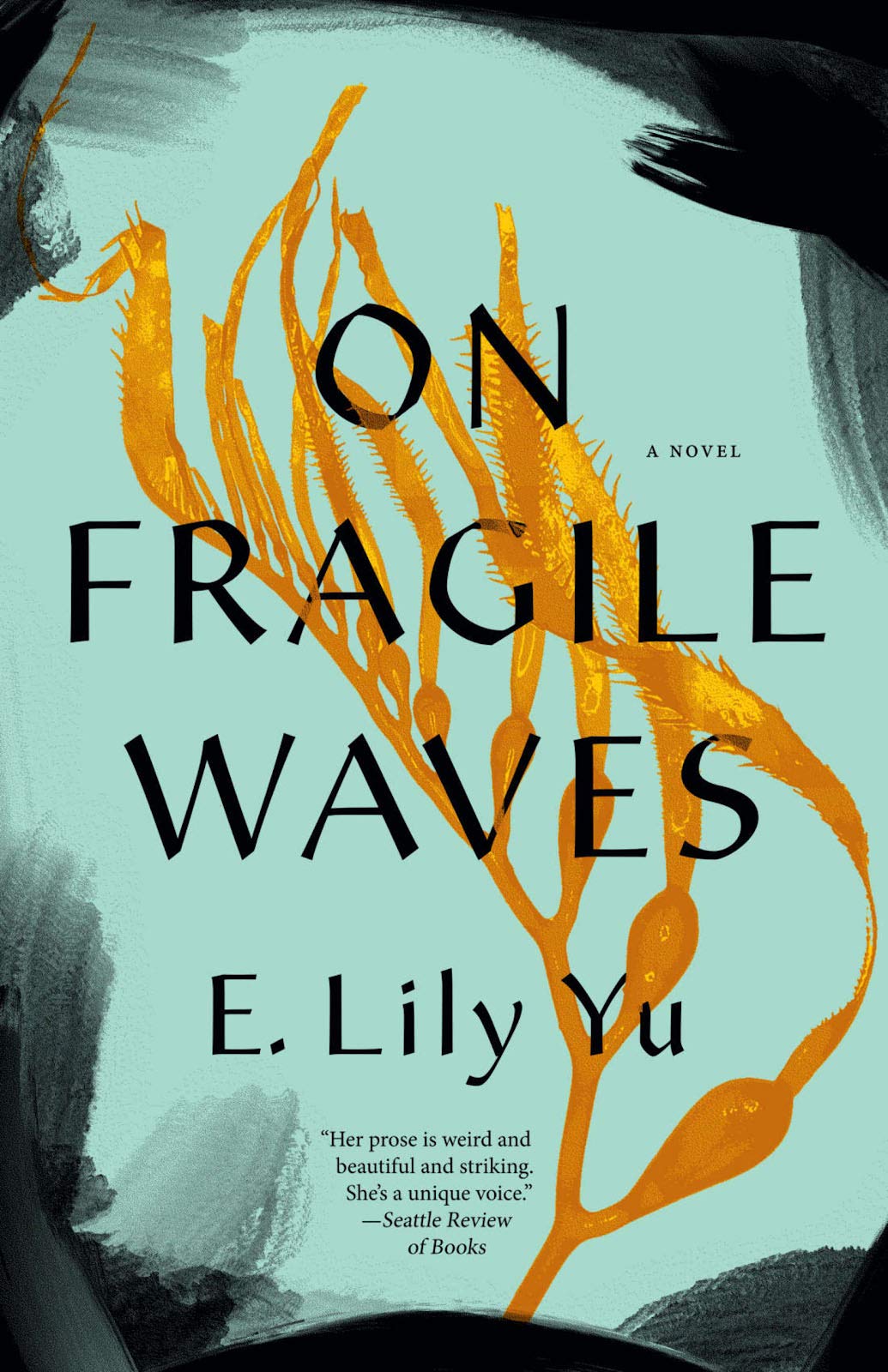
A Review of On Fragile Waves by E. Lily Yu
Words By Carissa Villagomez
To be published on February 2, 2021 by Erewhon Books
On Fragile Waves centers around Firuzeh Daizangi and her family as they flee Afghanistan for the promise of safety in Australia. The reader follows Firuzeh as she travels via refugee boat from her home in Kabul to detention centers and finally a new home in Australia. During her journey, Firuzeh encounters loss and suffering that leaves her with traumatic memories and immersive nightmares, all of which she copes with by reciting stories in her head or telling them to those around her. The hardships that elicited this coping mechanism don’t cease when she and her family arrive in the so-called promised land. Her parents must learn a new language, find jobs, pay bills, and worry about their family being deported when their visas expire.
This is a unique, gorgeous book. It’s devastating and heart-wrenching yet retains an overwhelming sense of beauty throughout with its use of experimental phrases and its impassioned love for storytelling. How can a book have an impassioned love for storytelling if it’s a story itself? Yu makes it possible, as Firuzeh herself learns about the importance stories have in shaping both individual and cultural identities. Firuzeh’s parents tell her and her younger brother Nour folk stories from the minute they flee Afghanistan as a means of distracting and comforting them. When these stories no longer hold all the answers or ways of coping, Firuzeh adopts the mantle of storyteller, taking inspiration from these tales and trying to recast her life into oral vignettes that capture what she’s feeling. Even as she grows up and deems these old stories childish, they remain an integral lens through which she processes the world, her dreams haunting her with their prose-like intensity.
The entire novel passes in a dreamlike state, bringing magical realism to mind. The passage of time isn’t always clear. Shock and loss hit the characters in a way that’s eerily reminiscent of reality—quick, without warning, and leaving deep disorientation and unprocessed grief in their wake. Tragedy strikes suddenly so that the reader is left reeling from the unexpected events and expected to take it in stride just as the characters do. That isn’t to say the characters are emotionally unresponsive—they have their own ways of processing and reacting to trauma, particularly through dreams and nightmares that haunt the narrative in both sleep and wakefulness. They keep marching forward and, while they don’t always consciously look back, the terror from their past is always psychologically in the periphery, burgeoning into the forefront in times of new emotional distress.
Firuzeh, her parents, and Nour all have their own distinct personalities, and seeing them interact not only reveals more about them as individuals but also exposes certain dynamics as products of their cultural upbringing. We see family humor and sibling bickering alongside Firuzeh’s anger with the preferential treatment of her brother and her frustration with upholding rules of hospitality when they are incompatible with her reality, such as giving food to guests when her family can’t afford to buy more. The characters were most well-developed with respect to nonverbal engagements, particularly how they handled grief. From Firuzeh’s mother to the protagonist herself, the characters processed trauma in specific ways. For example, Firuzeh processes loss with the use of storytelling to make sense of what has happened and try to figure out what to do next. Her mother, on the other hand, lapses into silence and gives up on communication, keeping her expression of grief private.
The most intriguing aspect of the book was its experimentation with form. Yu’s cognizant use (and disuse) of punctuation adds an entire undercurrent of meaning. Choosing to add punctuation in certain exchanges and leave them out elsewhere was such a deliberate choice full of unspoken purpose that left me agape with the ingenuity of its potential significance. One such stylistic choice was Yu’s use of quotation marks. In exchanges between Firuzeh and her family, quotation marks are entirely absent. Yet, whenever other characters appear in their own anecdotal chapters, such as the graduate student who helps teach the family English or the nun who connects the family to a community organization that supports immigrants, the exchanges amongst these side characters are always in quotation marks. To me, this elicited questions of voice and disenfranchisement, specifically who can speak and who is heard. It suggested that Firuzeh’s love of storytelling was a way to restore her own voice, even though she continued to go unheard by others who dismissed her existence as an individual without agency. Meanwhile, those who Australian society immediately recognizes as social actors, like the university student, use their voices and are heard when they do so, which is implicitly suggested by the restoration of punctuation to demarcate their speech. The grammar nerd and analytical maniac in me were awash with awe. The form experimentation also contributes to the magical realist streak of the novel and its take on framing trauma as a deeply individual experience that often results in either looking outward for sources of comfort, like stories, or internalizing without acknowledging tragedy’s effect on personal well-being.
Overall, with its unique wording, intriguing form experimentation, and tempered narrative adulation of tales, On Fragile Waves will appeal to anyone looking for a novel about the power of storytelling as an outlet of expression and comfort that’s used to cope with hardships.